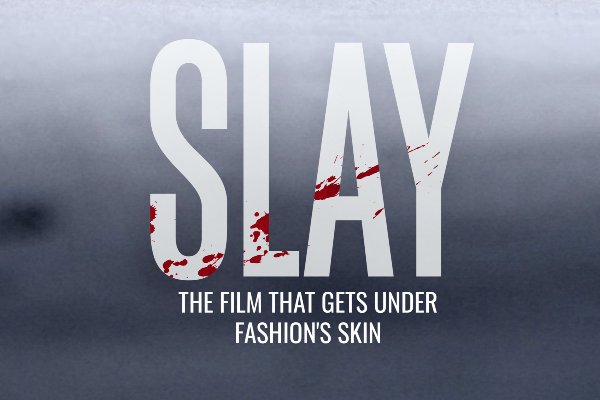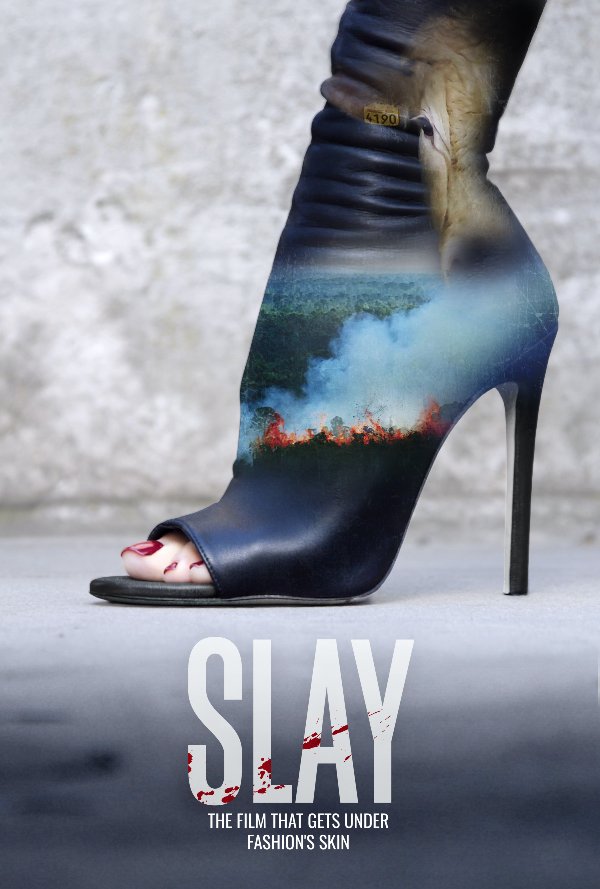A new feature documentary, Slay, looks into the ongoing use of animal skins – leather, fur, and wool – within the fashion industry.
Launching exclusively on WaterBear, a free streaming platform dedicated to the future of our planet, the documentary seeks to expose unethical practices whilst showcasing practical solutions.
Slay will be available to watch exclusively on WaterBear for two weeks from today (08
September), during the coveted ‘fashion month’. Access to charity partners and NGOs is also available via the platform. Slay will be available on further platforms.
Greenwash exposed
Showcasing investigative footage captured over the course of three years by filmmaker Rebecca Cappelli, Slay follows the industry’s supply chains and its impact on the environment – from water contamination caused by leather tanning to deforestation, animal suffering and modern-day slavery.
The documentary brings together a host of experts and campaigners, including TV personality and influencer Lucy Watson, founding director of Collective Fashion Justice Emma Håkansson, CEO of Red Carpet Green Dress Samata Pattinson, fashion journalist and sustainability activist Bandana Tewari and vegan educator and author Ed Winters – aka Earthling Ed.
Filming took place in Australia, Brazil, China, India, France, Italy and the U.S. Viewers are taken inside factories and farms to uncover the dark side of fashion.
By highlighting the extent of greenwashing in the fashion industry, Slay debunks myths around animal skins being a sustainable material.
‘The suffering of animals in the fashion industry is greenwashed into oblivion while those skin industries are destroying the planet and harming people. Slay aims to challenge the notion that animal skins are a fabric, and open people’s eyes to the dark realities behind some of the most sought after skins in fashion.’
REBECCA CAPPELLI
Director and producer of Slay
Sustainable fashion
The documentary reveals that there is hope, with alternatives to animal skins and furs growing year on year.
Solutions vary from puffer jackets made from 100% recycled bottles and animal-free leather
developed from pineapple leaf, mushroom or apple to plant-based wool grown from
flowers.
‘At WaterBear we believe in converting storytelling into action. It’s for this reason that we believe it is vital to have powerful documentaries such as SLAY on our platform to engage consumers and drive change in the fashion industry.
‘By providing viewers with direct links to support Collective Fashion Justice they can help to prevent and raise awareness of the exploitation of animals.’
ELLEN WINDEMUTH
CEO and founder of WaterBear
Busting myths around leather
Animals are everywhere in fashion. They’re in plain sight daily, but the story behind the materials is out of minds.
Slay busts common myths about the global leather industry, which was estimated to be worth $250 billion in 2021.
 Play Video about This Rock Might Just Save The World
Play Video about This Rock Might Just Save The World Play Video about Play 2 hours of rock
Play Video about Play 2 hours of rock Play Video about Play 2 hours of brook
Play Video about Play 2 hours of brook Play Video about Play 2 hours of sheep
Play Video about Play 2 hours of sheep












































